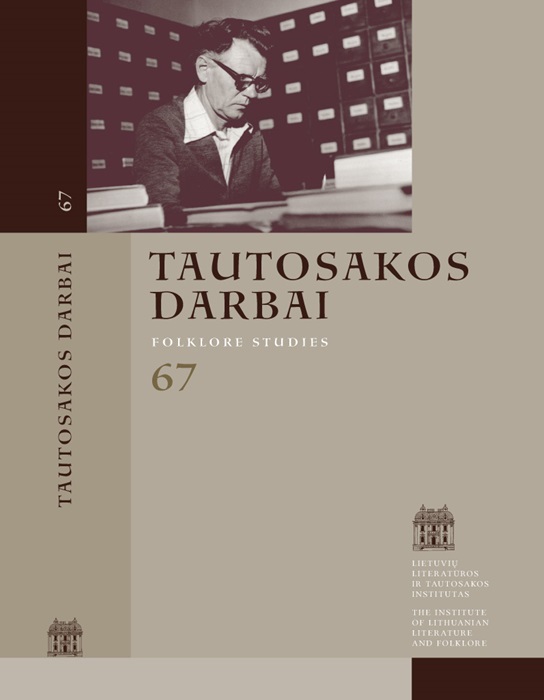The Motif of the Hero’s Clothes Sprinkled with Oak Blood in Latvian Songs and in Martynas Liudvikas Rėza’s Song “Aušrinė”
Abstract
The subject of the article is the song “Aušrinė” (Morning Star) published in Lithuanian and German by Martynas Liudvikas Rėza, and similar versions of the Latvian mythological song (LD 34043) about the hero’s blood-spattered clothes. The goal is to assess how the motif of clothes sprinkled with oak blood is related to other motifs of the heavenly wedding in Latvian mythological songs. In order to explain the meaning of this motif, the author uses the comparative material of Latvian incantations and Latvian folk songs of other genres. In addition, the aim is to specify the origin of the song “Aušrinė”.
The author uses descriptive and comparative methods as well as textual analysis. It is concluded that the motif of the hero’s clothes sprinkled with oak blood was formed due to an altered original plot of the Latvian song about the hero ascending to the sky in search of his dead parents. In some variants of the song, the message that the dead parents are celebrating at the wedding could have been replaced with the motif of them celebrating at the wedding of the Sun’s daughter (a maiden). This resulted in contamination of the song’s original imagery with the motifs of the heavenly wedding. Thus, the blood splattered on the clothes was no longer attributed to the devil, but to an oak tree.
It was established that the song “Aušrinė” published in Lithuanian and German in 1825 by Rėza is based in part on the German translation of the allegedly Lithuanian folksong “Es nahm der Mond die Sonnentochter” published in his article in 1818, while the content of this translation is strongly reminiscent of the lyrics of the Latvian song published in 1808 by Gustav Bergmann. This testifies to the gradual process of re-creating the folksong texts by various authors (including the possibly still unknown variants), which resulted in Rėza’s song “Aušrinė” published in Lithuanian and German.

This work is licensed under a Creative Commons Attribution 4.0 International License.
Downloads
Most read articles by the same author(s)
- Austė Nakienė, Daiva Račiūnaitė-Vyčinienė, Rokas Sinkevičius, Aušra Žičkienė, Nijolė Laurinkienė, Rūta Žarskienė, Chronicle , Tautosakos darbai: Vol. 53 (2017)
- Rokas Sinkevičius, The Motive of Thunderstruck Tree in Connection to Wedding Customs , Tautosakos darbai: Vol. 56 (2018)
- Rokas Sinkevičius, Not Yet Fully Solved Riddle of the Birth of the Divine Colt (Moon) , Tautosakos darbai: Vol. 49 (2015)
- Rokas Sinkevičius , Dangus virš Baltarusijos prabilo savais vardais , Tautosakos darbai: Vol. 51 (2016)
- Rokas Sinkevičius, Motives of Golden Boughs and Wreath in the Latvian Mythological Songs on the Sun Daughter’s Wedding , Tautosakos darbai: Vol. 60 (2020)
